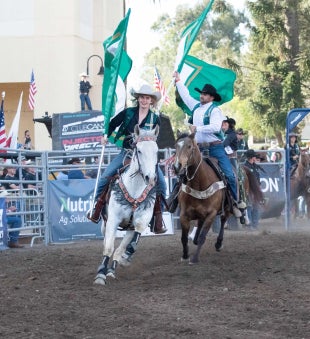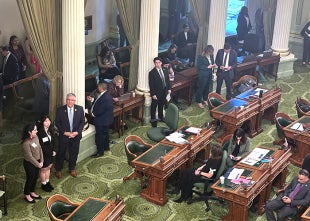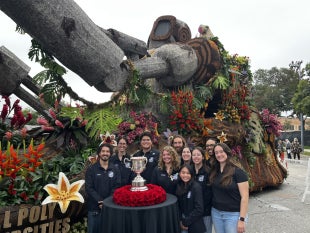Cal Poly Noyce School of Applied Computing Announces Transformational $60 Million Gift from The Robert N. Noyce Trust
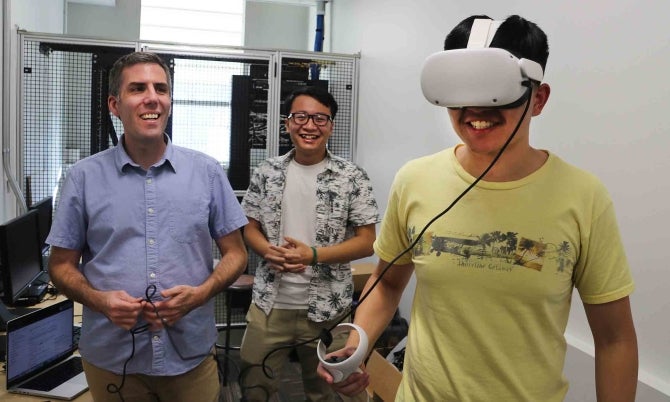
Contact: Charlotte Tallman
805-756-6402; ctallman@calpoly.edu
Gift supports faculty and student opportunities in a field exploding with growth
SAN LUIS OBISPO, Calif. – Cal Poly is home to the first interdisciplinary school of its kind thanks to a transformative $60 million gift from the Robert N. Noyce Trust.
The Noyce School of Applied Computing combines three departments — Electrical Engineering, Computer Science and Software Engineering, and Computer Engineering — with Statistics joining as an affiliate, paving the way for students and faculty using computer principles, concepts and technologies to address real-world problems.
Currently, the demand for graduates with an applied computing degree is far outpacing supply, with the U.S. Bureau of Labor Statistics predicting jobs in computing and information technology will climb 15% between 2021 and 2031 — much faster than the average for all occupations.
Software Engineering, Computer Science, Computer Engineering and Electrical Engineering accounted for 15% of recent applications to Cal Poly, and the number of applicants grows every year. The Noyce School will allow the San Luis Obispo university to increase the number of qualified students accepted to these programs.
“Our students are going out into the leading-edge industrial companies,” said Amy Fleischer, dean of Cal Poly’s College of Engineering. “They're going to change the world, and the education that we're going to provide here in the Noyce School will help them do that.”
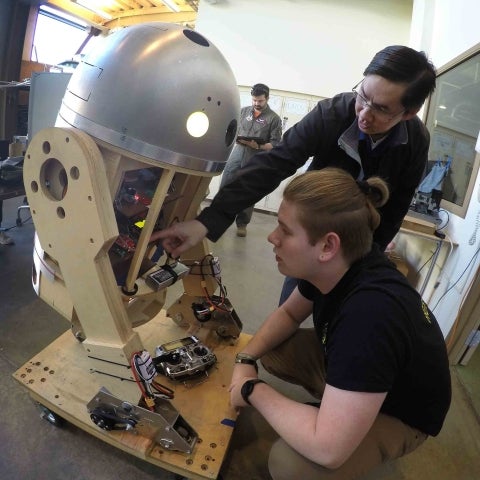
The $60 million gift was made in honor of Robert N. Noyce, a co-founder of Intel and inventor of the integrated circuit, which fueled the personal computer revolution and gave Silicon Valley its name. Nicknamed the “Mayor of Silicon Valley,” Noyce’s impact on the field of computing and society at large cannot be overstated.
“We are thrilled that Dr. Noyce’s legacy will be recognized and appreciated by the students and faculty at Cal Poly for generations to come,” said Michael Groom, a trustee of the Robert N. Noyce Trust, when the gift was established. “We believe the establishment of The Noyce School of Applied Computing comes at a pivotal time, when there is a major deficit of new graduates in the fields of computing and computer sciences, and the need and demand for these skilled workers remains very high.”
Led by Founding Director Chris Lupo, the Noyce School of Applied Computing will have a transformational impact on the university, allowing for the establishment of an endowment that will fund the Noyce School’s operations in perpetuity and enable Cal Poly to offer state-of-the-art facilities, access to new interdisciplinary research projects and curricular and co-curricular opportunities for faculty and students.
Thanks to this generous gift, Cal Poly is already investing in state-of-the-art equipment for upgraded labs. Students will also have more opportunities to further their interests in teaching and learning, as well as industry opportunities for paid internships and opportunities for mentors to provide guidance and counseling along the way. In addition, faculty will be provided with additional resources for teaching and applied research, professional development and innovative and collaborative curriculum design.
“Dr. Noyce’s legacy will inspire students and faculty to grow and be the next industry trailblazers," said Cal Poly President Jeffrey D. Armstrong. "Through this generous gift from the Robert N. Noyce Trust, Cal Poly will be able to educate more students to solve the challenges of tomorrow.”
Top photo: Professor Jonathan Ventura and computer science students Nam Nguyen and Edward Du test out a 3D video produced with the help of artificial intelligence.

